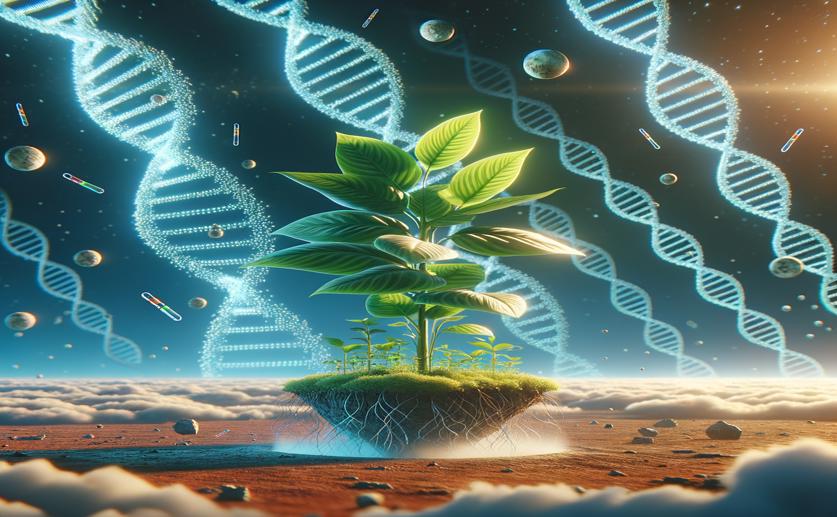
How Zero-Gravity Affects Plant DNA Methylation Patterns
Jim Crocker
2nd May, 2024

Image Source: Natural Science News, 2024
Key Findings
- In space, Arabidopsis plants showed changes in DNA methylation, which affects gene activity and stress response
- A mutant Arabidopsis with a disrupted epigenetic gene had more pronounced methylation changes, struggling more in space
- These findings suggest that controlling plant epigenetics is key for adapting them to space environments
References
Main Study
1) Single-molecule long-read methylation profiling reveals regional DNA methylation regulated by Elongator Complex Subunit 2 in Arabidopsis roots experiencing spaceflight
Published 30th April, 2024
https://doi.org/10.1186/s13062-024-00476-z
Related Studies
2) Plant growth strategies are remodeled by spaceflight.
3) Dynamics and function of DNA methylation in plants.
4) Epigenomic Regulators Elongator Complex Subunit 2 and Methyltransferase 1 Differentially Condition the Spaceflight Response in Arabidopsis.



 25th April, 2024 | Jenn Hoskins
25th April, 2024 | Jenn Hoskins